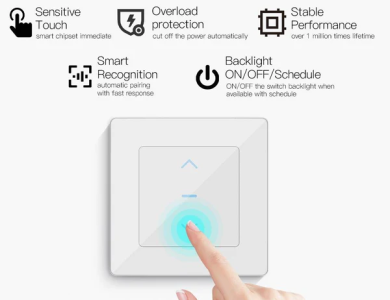The rapid advancement of artificial intelligence (AI) is transforming the education landscape. From personalized learning paths to virtual tutors, AI has introduced powerful tools that make learning more engaging, accessible, and effective. The integration of AI into education has led to a surge in the popularity of eLearning platforms, which offer students flexible and personalized learning opportunities.
AI’s influence on student engagement and academic achievement is undeniable. By personalizing learning experiences, providing instant feedback, and offering real-time support, AI has empowered students to take control of their education. This personalized approach boosts motivation, knowledge retention, and academic performance.
This article explores how AI impacts student engagement, academic achievement, and the role of eLearning platforms in creating a student-centered learning experience.
1. The Role of AI in Education
Artificial Intelligence in education refers to the use of machine learning, natural language processing, and predictive analytics to create smarter and more personalized learning experiences. AI systems analyze large datasets to identify student performance trends, predict learning outcomes, and customize educational content.
How AI Works in Education
- Data Collection: AI tracks student behavior, including assignments, test results, and interaction with learning materials.
- Data Analysis: AI systems analyze this data to understand student strengths, weaknesses, and learning patterns.
- Personalized Learning Paths: Based on the analysis, AI adjusts lesson difficulty, assignments, and quizzes to fit the student’s needs.
- Feedback and Support: AI provides instant feedback and access to virtual tutors to support student learning.
This adaptive learning process ensures that students receive the right level of support and guidance at the right time, making learning more effective and enjoyable.
2. How AI Enhances Student Engagement
Engagement is a critical factor in academic success. The more engaged students are, the more likely they are to participate in lessons, retain information, and achieve higher academic performance. Here’s how AI increases student engagement in education.
1. Personalized Learning Experiences
One of the most powerful impacts of AI on education is the ability to provide personalized learning experiences for each student. Unlike traditional classrooms, where all students follow the same curriculum, AI-based systems analyze student data to tailor learning paths, assignments, and lessons.
How Personalized Learning Works:
- Each student receives customized lesson plans and exercises based on their progress and learning pace.
- AI identifies weak areas and focuses on concepts where the student needs the most support.
- Students can skip topics they’ve already mastered, saving time and reducing boredom.
Impact on Student Engagement:
- Students are more engaged when the learning material matches their skills and interests.
- Students feel a sense of control over their education, leading to higher motivation.
- Personalized learning boosts self-confidence, as students can see their progress in real time.
2. Interactive Learning Through AI-Powered Tools
AI makes learning more interactive and dynamic through chatbots, virtual tutors, and AI-driven simulations. Instead of passively absorbing information, students actively participate in their learning process.
How Interactive Learning Works:
- Students engage in conversations with AI chatbots that offer instant answers to their questions.
- AI-powered simulations and virtual labs enable students to explore real-world scenarios.
- Gamification elements, such as badges, points, and leaderboards, keep students engaged.
Impact on Student Engagement:
- Interactive learning environments keep students interested and curious.
- Gamification boosts motivation and encourages healthy competition among students.
- Virtual simulations help students visualize abstract concepts, making learning fun and engaging.
3. Real-Time Feedback and Assessment
AI provides students with real-time feedback on assignments, quizzes, and assessments. Unlike traditional education, where students must wait for teachers to grade their work, AI instantly evaluates student performance and offers actionable feedback.
How Real-Time Feedback Works:
- AI systems use natural language processing (NLP) to evaluate essays and short-answer questions.
- Students receive immediate feedback on multiple-choice questions, quizzes, and assignments.
- The system highlights errors, suggests improvements, and allows students to resubmit their work.
Impact on Student Engagement:
- Real-time feedback motivates students to make corrections and learn from their mistakes.
- Students experience less frustration since they can fix errors quickly.
- Continuous feedback increases accountability, encouraging students to stay on track.
4. 24/7 Availability of Virtual Tutors and Chatbots
Unlike traditional classrooms, where students have limited access to teachers, AI-powered virtual tutors provide 24/7 support. These AI-driven tutors act as personal assistants, offering help with assignments, projects, and test preparation.
How Virtual Tutors Work:
- Students can ask questions, request explanations, and receive study tips from virtual tutors.
- AI chatbots handle frequently asked questions, ensuring students never feel stuck.
- Advanced AI tutors use natural language processing (NLP) to offer detailed, human-like responses.
Impact on Student Engagement:
- Students can study at their convenience, even during weekends or late at night.
- Access to 24/7 support reduces anxiety and makes students more independent learners.
- Virtual tutors foster self-directed learning, empowering students to take ownership of their education.
3. How AI Improves Academic Achievement
AI-driven learning platforms do more than engage students — they also boost academic achievement. By personalizing learning, offering timely feedback, and providing round-the-clock support, AI ensures that students achieve better academic results.
1. Custom Learning Paths for Higher Achievement
Students learn at their own pace through AI-driven personalized learning paths. AI identifies areas where students are struggling and offers targeted resources, helping them achieve mastery before moving on to the next concept.
Impact on Academic Achievement:
- Students spend more time on difficult topics, resulting in a deeper understanding of core concepts.
- By mastering one topic before moving on, students achieve better grades and test scores.
2. Reduced Knowledge Gaps
AI analyzes student data to identify knowledge gaps and address them in real-time. If a student struggles with a specific concept, the system provides additional learning materials, practice exercises, and quizzes.
Impact on Academic Achievement:
- Knowledge gaps are closed quickly, ensuring students are ready for more advanced concepts.
- Students achieve better grades because they have a strong foundation in core concepts.
3. Early Detection of At-Risk Students
AI-powered predictive analytics detect students who are at risk of falling behind. Teachers receive alerts, allowing them to provide timely support and intervention.
Impact on Academic Achievement:
- Early intervention ensures that struggling students receive the support they need.
- Students are less likely to drop out, leading to higher retention rates and better academic outcomes.
4. Enhanced Student Motivation and Confidence
When students receive real-time feedback, personalized learning paths, and 24/7 support, they feel more confident in their abilities. This boost in confidence translates into better academic performance.
Impact on Academic Achievement:
- Students who believe in their abilities are more likely to persevere through challenges.
- Higher levels of motivation result in better participation, higher grades, and academic success.
4. The Role of eLearning Platforms in AI-Powered Education
eLearning platforms play a crucial role in making AI-powered education accessible to students worldwide. These platforms provide students with on-demand access to lessons, resources, and personalized learning experiences. AI is embedded in the core of modern eLearning platforms, enabling real-time feedback, personalized study paths, and 24/7 support.
How eLearning Platforms Use AI
- Personalization: Custom learning experiences based on student performance.
- Adaptive Learning: Adjusts lesson difficulty to match student abilities.
- Data-Driven Insights: Provides teachers with student performance reports and recommendations.
These platforms bridge the gap between traditional education and digital learning, offering students the best of both worlds.
5. The Future of AI in Education
AI is set to play an even larger role in the future of education. Here are some key trends to watch out for:
- Emotion AI: AI that detects student emotions and adjusts lessons accordingly.
- Voice-Activated Learning Assistants: Students will interact with AI voice assistants for guidance.
- Augmented Reality (AR) and Virtual Reality (VR): Immersive, interactive learning experiences will become mainstream.
Conclusion
AI is transforming student engagement and academic achievement in unprecedented ways. By offering personalized learning paths, adaptive learning, real-time feedback, and 24/7 support, AI creates a student-centered experience. Modern eLearning platforms are at the heart of this revolution, making education more inclusive, accessible, and effective.
Students benefit from self-paced learning, timely feedback, and support from AI-powered virtual tutors. As AI technology advances, the future of education will become even more personalized, with smarter, faster, and more efficient learning methods.
Institutions that embrace AI-powered learning platforms will be at the forefront of this change, providing students with the tools and support they need to succeed in the modern educational landscape.




